30. Slash Feat. Myles Kennedy & The Conspirators: World On Fire (2014)
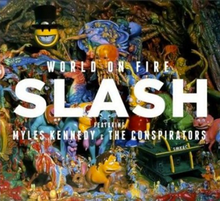
As the loudness wars showed no sign of approaching an armistice in 2014 – let alone a lasting peace – rock albums in the middle of the decade were increasingly mastered like pop and R&B collections, with everything as loud as everything else.
Gone were the dynamics, the subtleties, the light and the shade, all lost to the overworked evils of compression and equalisation. This meant that an album as ambitious as World On Fire – and, at 77 minutes, WOF was nothing if not ambitious – became a never-ending sonic wall which needed to be forcefully dismantled in order to figure out if what was on the other side is worth visiting.
So it was a terrible album, right? Wrong. WOF was a very, very good record. Once you’d taken a mental wrecking ball to all that brickwork and worked your way past the songs that played tricks on the memory – the cowbell on the title track that channeled Nightrain, or the drum-heavy intro to 30 Years To Life, which immediately triggered thoughts of Paradise City – this was a vibrant, utterly ferocious set of tunes.
It helped that the two main players were so transparently on top of their game: Slash proved he was still the master of those sleazy, slithering, fleet-of-finger riffs, and much of his soloing sounded like he was possessed, firing off cascades of notes with a dizzying, effortless precision.
Myles Kennedy’s performance was similarly frenetic, and while his lyrics might have occasionally baffled – just what, pray tell, is a ‘ten-tonne suicide’? (Automatic Overdrive) – the range of the man was little short of breathtaking. Take Wicked Stone: it rattled along at the kind of merciless pace that would have turned most decent singers into feverish, gibbering loons, but Kennedy soared above it all with diabolical ease.
So much of the album was in-your-face epic that it was perhaps no surprise that the three best tracks were also the longest. Beneath The Savage Sun started out all Alice In Chains and ended like Metallica. Battleground gently drifted from ballad to crunching rocker and ended in an enormous, Mott The Hoople-style singalong, and The Unholy was a Stargazer for the 21st century.
Listening to all 17 tracks on World On Fire in one go felt like going 12 rounds with a heavyweight boxer, a championship belt on the line. It was a brute, it hurt, it pinned you against the ropes… but if you persevered, the rewards were worth it.
Our score: 8/10
29. Clutch - Psychic Warfare (2015)
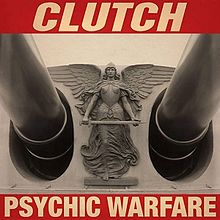
Slowly but surely, this decade has seen the mainstream rock world beginning to cotton on to why Clutch have been so revered and adored within underground metal circles for the last 20 years or more. Perhaps it was 2013’s incisive Earth Rocker album that clinched the deal – as we've already discussed further up this list, it was a fearless and focused encapsulation of the Maryland quartet’s trademark sound that also saw their songwriting reach a new peak of efficacy.
If not that, then maybe it was simply that current tastes have drifted far enough into raucous, bluesy territory that Clutch’s approach suddenly made perfect sense. Either way, Psychic Warfare was the perfect way for the band to consolidate their growing allure and to further cement their reputation for being one of the few unapologetic rock bands on the planet that could harness the genre’s past without being beholden to it.
Seemingly content to be themselves and leave the wilful experimentation to bands that lacked such a strong core identity, Clutch now sounded entirely thrilled by their own sound and in total command of its incremental evolution. Tim Sult’s unmistakable riffs and the infectious swing of drummer Jean-Paul Gaster and bassist Dan Maines wrapped themselves around more inspired tales of weirdo America from an increasingly authoritative Neil Fallon.
All sober analysis aside, the best thing about Clutch remained the same as ever: they’re insanely good fun, not to mention heavy enough to shake the walls and witty enough to coax a smile from the moodiest of burly beard-wearers. From the infectious rush of X-Ray Visions (‘Telekinetic prophetic dynamite!’ bellowed Fallon) and the blazing Firebirds, to the darkly comic Sucker For The Witch and the funky fidget of Your Love Is Incarceration, Psychic Warfare comprised a blur of gleaming hooks and unstoppable grooves, all topped with endless fresh examples of Fallon’s wonderfully idiosyncratic outlaw poetry.
Clutch are still the greatest rock’n’roll band on planet Earth, and this was another classic.
Our score: 9/10
28. Alice In Chains - Rainier Fog (2018)
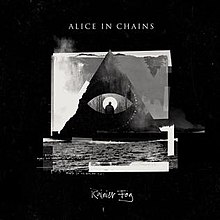
The second half of Alice In Chains’ 30-plus-year career has been a lot less choppy than the first. Their dignified 2006 reunion, three years after the death of original singer Layne Staley, showed they could do it without the man who gave them their grim charisma or the drug-related arse-ache that came with it.
Their third post-Staley album, Rainier Fog lived up to the age-old adage: if it looks like an Alice In Chains record and quacks like an Alice In Chains record, it’s an Alice In Chains record. All the requisite parts were present and correct, from Jerry Cantrell’s monolithic, heir-to-Iommi riffs, to lyrics about death, drug abuse and more death.
Opener The One You Know invoked the core AIC elements right out of the gate: the droney guitars, lush double-lead vocals and chilly melodic progressions. But when the velvety harmonies of the chorus kicked in amid the majestic squall of guitars, it was clear that a fresh new vision was at hand.
At its essence, AIC’s catalogue is an expansive exploration of the tension between darkness and light: the bludgeoning heft of Facelift on one end, Jar Of Flies on the other and everything else floating in between, united in a bleak theme of addiction, isolation and despair. With Rainier Fog, we saw the band adopting the cautiously optimistic perspective of survivors – unsurprising, given their longevity amid a slow parade of death among their friends and peers. The band opaquely addressed their relationship with their home town and their own own ill-starred history. Seattle was woven into the album’s fabric – the title referred to Mount Rainier, the extinct volcano that dominates the city’s skyline.
The shadow of Staley – along with those of late Alice In Chains bassist Mike Starr and fellow grunge icon Chris Cornell – loomed equally large. ‘Tell me does it matter if I’m still here or I’m gone,’ Duvall intoned on The One You Know, not the only instance he seemed to be singing about you know who.
Alice In Chains may have matured, but they sure hadn't softened. So Far Under tapped into the gnarled defiance of 1990’s Facelift, with its sharp, serpentine riffs and vitriolic refrain. On the fragile, more melodic side, Fly and Maybe both featured sparkling, tightly woven fretwork and absurdly addictive choruses that begged to be cranked on car stereos for sunset drives.
From top to bottom, each track showcased masterful songwriting and inspired lyricism. Rainier Fog saw the band breathing new life into their signature sound, with a diverse and deeply emotional collection that history will surely view as a career-defining statement.
Our score: 8/10
27. Garbage - Strange Little Birds (2016)
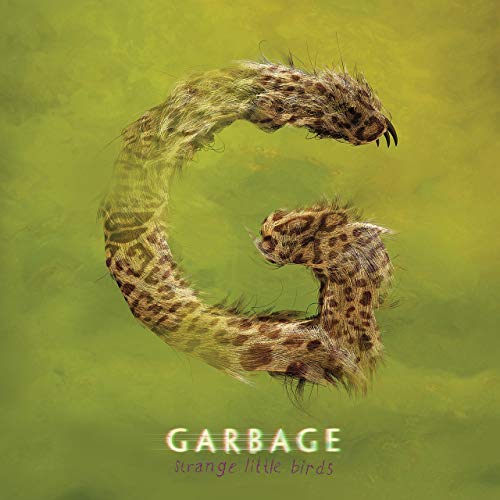
Garbage always seemed so brazenly plastic during the authenticity gold rush of grunge, but their glossy slickness has proved to be as much saving grace as fatal flaw.
Regrouping at the dawn of this decade following a lengthy hiatus, the alt.rock supergroup’s second album on their own indie label was billed as being more cinematic and less rocky than usual. That translated into slightly fewer heavy guitars and slightly more piano and strings. Otherwise it was business as usual in Shirley Manson’s deluxe sex dungeon. Which was a good thing, mostly.
Sonically, Strange Little Birds had one foot in the lush, high-tech noirscape that Depeche Mode call home, from the seismic wobbleboard effects which punctuated the sultry S&M power ballad Sometimes, to the sci-fi laser-gun noises that cranked up the whooshing melodrama of So We Can Stay Alive. Manson also strayed into Goldfrapp or Portishead territory on brooding torch songs like Even Though Our Love Is Doomed and Teaching Little Fingers To Play.
Strip away all the sumptuous studio texture and the lyrics – about savage love, violence and revolution – were sodden with adolescent gothpunk cliché. But this scarcely mattered when the future arena anthems Magnetized and We Never Tell hit their stride. This was an album which basked in being lusty, energised and refreshingly shallow.
Our score: 6/10
26. Opeth - Pale Communion (2014)
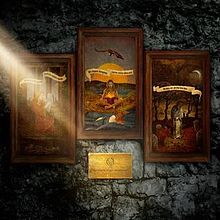
’Twas a strange but beautiful thing – the sound of Swedish Beelzebub, and his fellow monsters of thinking-man’s metal, going ‘prog’.
Following their conception on death metal terms, Opeth had been veering down increasingly progressive paths ever since. Spectacular works like My Arms, Your Hearse and Blackwater Park transformed the possibilities for fresh-from-Hell death vocals, teaming them with exquisite atmospherics and inventive shades of metal.
2011’s Heritage moved further away from the metal world (to mixed reception), and then Pale Communion soared right into prog land. Death vocals were gone. Majestic, contemporary, King Crimson-echoing prog took its place. A worthwhile venture? Oh yes.
It may come as no surprise to learn that Steven Wilson mixed this album (he also mixed Heritage). He and Åkerfeldt had collaborated via Opeth, Porcupine Tree and their duo project Storm Corrosion, among other avenues. And the mutual influence they had exchanged over the years fully came to fruition on Pale Communion.
But the delicacy and absent death vocals didn't leave Opeth without nuts. Nor did the orchestral strings, grandly but smoothly linking various points. Menacingly minor nu-prog progressions and mighty guitar chops added colour and weight to the likes of Moon Above, Sun Below. It all generated a brooding, lavish environment for the carefully crafted tunes present here – clearly something Åkerfeldt and co focused on.
Probably the most enchanting aspect of Pale Communion was its mood shifts. Wilson had observed that prog rock is wonderful in its capacity to not fall into simple ‘happy song’ or ‘sad song’ categories. While every song here had a definite soul, the twists, turns, small swerves and sharp jolts they took us through were compelling. River, for instance, began as a prettily harmonised, unplugged piece, growing in stature via sublime classic rock guitar melodies, before jarring into a brooding prog-metal tangent.
So yes, the new prog age of Opeth had cometh – and with 2016's Sorceress and 2019's In Cauda Venenum it only grew. Mourn their death metal farewell – but more importantly, relish the result of an intelligent, engaging act taking a new stand. Captivating stuff.
Our score: 8/10
25. The Black Keys - Brothers (2010)
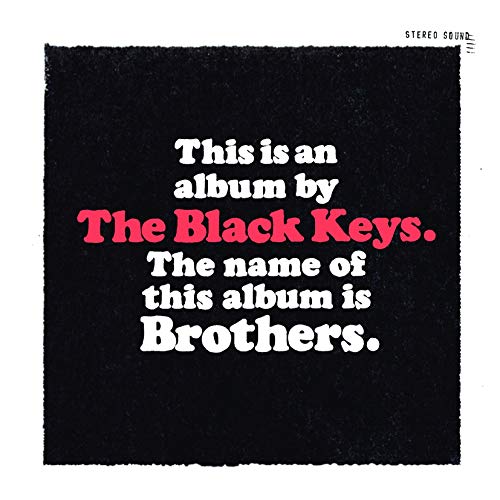
Making a digital product – be it an MP3 or CD – sound like an old, dusty slab of heavyweight vinyl is no easy trick but on Brothers, Akron, Ohio duo The Black Keys made you believe that old feeling had nothing to do with sleeves or putting the needle on the groove and everything to do with the care you put into a recording.
Dan Auerbach and Patrick Carney had made fuzzier, earthier albums in their relatively short and highly prolific career but none that ended up with such a rich and soulful sound – something that in our manicured era you would have suspected to be impossible. Yes there were deliberately retro touches – vocal distortion, delay and hiss – but that was not what gave the album such an authentic, timeless buzz. That came from the music and the dynamic.
Brothers was absolutely marinated in the past (the font used on the album cover was the same as The Beach Boys’ Pet Sounds, and the layout and title a hat-tip to Howlin’ Wolf’s The Howlin’ Wolf Album from 1969). The album was recorded at Muscle Shoals Sound Studio where The Rolling Stones made parts of Sticky Fingers, and Brothers had plenty of the same ramshackle charm.
The mix of past and present was reminiscent of Beck’s Odelay, but this was no exercise in twisted MOR. Much of the approach was possibly down to their involvement with various hip hop artists at the time – including Danger Mouse (real name Brian Burton) who produced the album before Brothers and performed the same duty on just one track here, the magnificent Tighten Up (the rest of the album was self-produced).
By their past standards, Brothers was a slick and polished mainstream affair – a far more upbeat and friendly album than previous efforts. Auerbach even sang falsetto on the opening Everlasting Light. But it was still a sprawling, mixed bag of tunes, riffs and jams.
Certain albums tend to get overhyped these days, but Brothers was the real deal.
Our score: 9/10
24. Soundgarden - King Animal (2012)
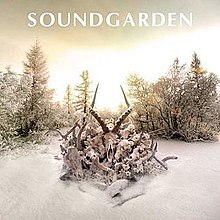
The culmination of Soundgarden’s three-year comeback campaign, which swirled around the start of this decade, finally arrived when the ravenously anticipated King Animal dropped in 2012. At the time, it was the band’s first new album in 16 years.
Maddeningly, the grunge godfathers originally hung it up just when things were getting interesting. The one-two punch of 1994’s Superunknown and 1996’s Down On The Upside saw Soundgarden relying less on the unfocused bombast of their early releases and more on ambitious song structures, acoustic texturing and increasingly nuanced production.
While …Upside shouldered the imposing weight of following the singles-rich, multi-platinum colossus Superunknown, King Animal faced the more manageable task of following a long hiatus. With no recent album in the rear-view mirror providing a relevant point of comparison, the primary question which hung over King Animal was not ‘What’s their new direction?’ but ‘Have they still got it?’
The answer was a massive ‘Yes.’
‘You can’t go home, no I swear, you never can,’ late singer Chris Cornell roared, tongue-in-cheek, to ignite the blistering opener Been Away Too Long. It kicked off a punishing trio of sonic missiles (with the scorching Non-State Actor and the marauding attack of By Crooked Steps), clearly aimed at eviscerating any doubt regarding the band’s vitality. It was every bit your father’s Soundgarden and then some, aged exquisitely and distilled into a bracing new blend of rumbling, oceanic rhythms, mountain-sized hooks and the lean, inimitable attack of guitarist Kim Thayil.
King Animal was an aggressive and tightly focused continuation of the band’s mid-90s evolution, offering a diverse sampling that included a lumbering stoner feast (Blood On The Valley Floor), a comely ballad (Bones Of Birds) and the acoustic-driven duo of Black Saturday and Halfway There.
With so many rich flavours, muscular riffs and meaty lyrics, repeated listens yielded a sumptuous payoff and King Animal established that Soundgarden were back with enough all the swagger and vision of their finest efforts.
Our score: 8/10
23. Metallica - Hardwired... To Self-Destruct (2016)
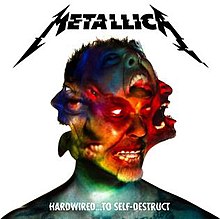
How do you cling on to your throne as the world’s biggest hard rock band for more than 25 years? Metallica have had a few wobbles over the decades: legal battles with fans, a few duff albums, bust-ups and fall-outs and ill-advised public therapy sessions. Their harshest critics would argue that in the process they have diluted thrash metal into safe family entertainment, mainstream enough to headline Glastonbury or pack cinemas with glossy IMAX concert films.
And yet, even in 2016 a new Metallica album was still a cultural event in a way few other rock releases are. They may no longer be the loudest, fastest or most abrasive, but these former thrash metal overlords remain the gold standard of how unashamedly heavy music can still compete with the biggest blockbuster names in pop and rap.
When Hardwired... dropped, eight years had elapsed since the multi-platinum Death Magnetic, the longest gap between studio albums in Metallica’s career. Initially they planned to work on Hardwired…To Self-Destruct with the same producer, the legendary Rick Rubin, but during the project’s long gestation studio engineer Greg Fidelman took over co-production with Lars Ulrich and James Hetfield.
The two lead-off singles were deceptively compact belters. Hardwired, the last song written and recorded for the album, was an exhilarating, three-minute blast of machine-gun punk-metal, all squealing tyres, screeching hand-brake turns and percussive staccato chants: ‘We’re so fucked! Shit outta luck!’ Yay! Moth Into Flame was another exercise in pummelling brevity, its hurtling centrifugal energy nicely offset against chiming minor-key chords. Both were punchy, choppy and relatively poppy by modern Metallica standards.
But as the album unfolded it expanded into six, seven and eight-minute epics. The apex of this billowing gigantism was Halo On Fire, a brooding power ballad framed by a widescreen vista that takes in mountainous crunch chords, fizzing geysers of super-fast guitar squiggle and towering volcanoes of fiery, Wagnerian excess; imagine a Game Of Thrones box set crammed into eight minutes of molten melodrama. And Am I Savage? was a gloriously ugly, scouring, relentless skull fucker with a lyric about bestial transformation and mighty Old Testament doom chords worthy of Black Sabbath. Zombie romance lasted forever in Now That We’re Dead, a louche, leering, lightly gothic love song in which Hetfield serenaded his corpse bride: ‘Now that we’re dead, my dear, we can be together.’ There were pleasing echoes of Kurt Cobain’s mordant wit within.
The album ended on a high with Spit Out The Bone, a monumental Gormenghast of dystopian thrash nihilism with a lyric celebrating humanity’s extinction at the hands of genocidal machines. ‘Utopian solution!’ Hetfield barked, ‘finally cure the Earth of Man!’ Exhilaratingly noisy and steeped in gleefully negative punker attitude, it was a welcome reminder of Metallica at their uncompromising best. Unshackled from orthodox notions of good taste, with Hardwired..., Metallica proved they can still make a gloriously hideous racket.
Our score: 6/10
22. Marillion - Fuck Everyone And Run (2016)
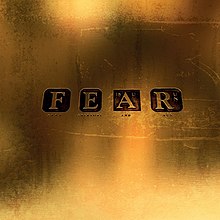
At times, FEAR (Fuck Everyone And Run) suggested that Marillion had taken all the most emotionally potent and fervently dynamic moments from its line-up’s 27 years together and moulded them into some new, exponentially emboldened form.
The wonderfully fluid way that epic opener El Dorado glided through its five fragments recalled the deft melodrama of 1994’s concept piece Brave, via the unsettling mutations of The Invisible Man (from Marbles, 2004): simultaneously stark and trippy, it was simply spellbinding.
But even beyond the refining and redefining of their known qualities, FEAR felt like an imperious stride forward, the spikiness of its lyrical undertow making a mockery of the notion that Marillion are just cheery old farts playing to the gallery.
The incensed sprawl of The New Kings brought the band’s 18th album to a devastating close, as H ranted, crooned, whispered and howled about social injustice, the wickedness of unchecked power and the grand audacity of media manipulation. If that was all relevant in 2016, lord knows it's relevant now.
It was both deeply moving and quietly thrilling: the sound of a veteran band completely engaged with their music, their world view and their reasons for giving a shit.
An album of great depth, huge heart and dizzying finesse, this was one of Marillion’s very best.
Our score: 8/10
21. Alter Bridge - AB III (2010)
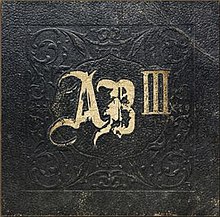
Great expectations can be a terrible burden for any rock band. With three former members of arena-slaying radio-rock titans Creed standing shoulder-to-shoulder with Myles Kennedy – the prodigiously-talented vocalist who was at one point fully expected to be the new Led Zeppelin frontman – Alter Bridge arrived at their third studio album with little chance of commercial failure, but with the dewy-eyed hopes of a steadily expanding global fan base exerting pressure to deliver from all sides.
As the venues and crowds increased in size, AB III needed to outstrip its two predecessors on every level and, when the planets duly align, firmly thrust the band into rock’s upper echelons once and for all. Nothing too taxing then, eh lads? In fact, the astonishing thing about AB III was how completely and utterly it surpassed everything that Alter Bridge had done before.
Both their One Day Remains debut and its 2007 follow-up Blackbird contained a smattering of timeless anthems and moments of blustery brilliance, but neither came close to this album’s consistency and incisiveness. Yes, Kennedy’s gloriously bold and true voice, and guitarist Mark Tremonti’s strident invention and soulful swagger ensured that everything here sounded wonderfully natural and convincing, but it was that most basic of elements – top-notch songwriting – that raised AB III above and beyond the ordinary and into authentic classic album territory.
First single Isolation was a case in point. Exploding into life with a thunderous riff that was both unashamedly metallic and blithely infectious, it flowed beautifully from vivacious verse to climactic chorus, casually stopping off for a deftly-executed middle eight replete with off-kilter rhythmic twists and enough buoyancy to get the Titanic back on track. Similarly, dark and brooding opener Slip To The Void, powerhouse ballads All Hope Is Gone and Wonderful Life and crunch‘n’groove anthems Still Remains and I Know It Hurts all strained at the seams with stirring hooks and enough warmth and charisma to win over all but the most ardent Creed-haters.
AB III was that rare beast: a big, bombastic rock album that connected with heart and head from thrilling start to overwhelming finish.
Our score: 9/10
